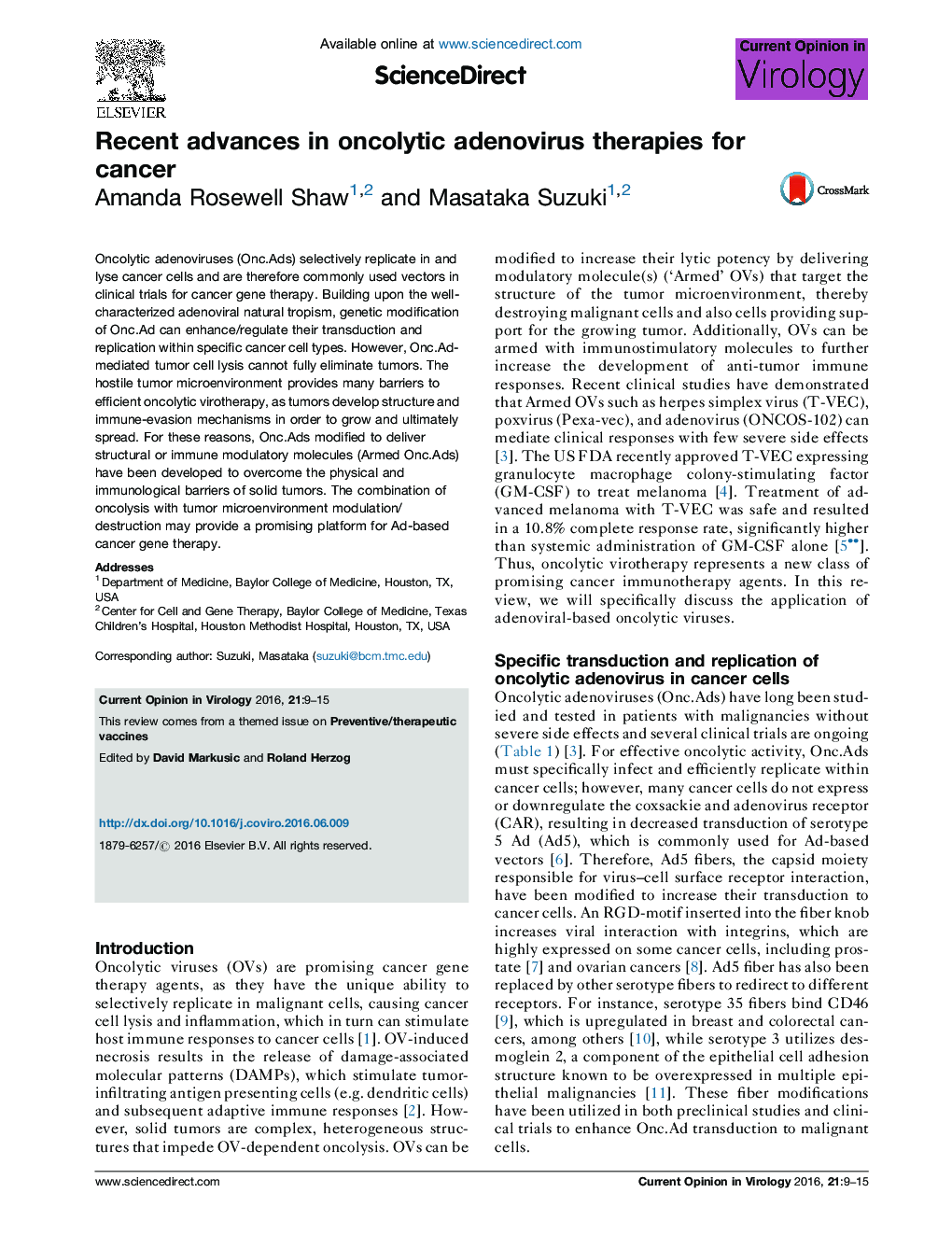| Article ID | Journal | Published Year | Pages | File Type |
|---|---|---|---|---|
| 2473141 | Current Opinion in Virology | 2016 | 7 Pages |
•Oncolytic adenoviruses (Onc.Ads) are promising as cancer gene therapy agents.•Onc.Ad selectivity and cytolytic potency can be enhanced by genetic modifications.•Onc.Ads can be modified to target various aspects of the tumor microenvironment.•Onc.Ad delivery of immune-modulatory molecules can enhance anti-tumor immunity.
Oncolytic adenoviruses (Onc.Ads) selectively replicate in and lyse cancer cells and are therefore commonly used vectors in clinical trials for cancer gene therapy. Building upon the well-characterized adenoviral natural tropism, genetic modification of Onc.Ad can enhance/regulate their transduction and replication within specific cancer cell types. However, Onc.Ad-mediated tumor cell lysis cannot fully eliminate tumors. The hostile tumor microenvironment provides many barriers to efficient oncolytic virotherapy, as tumors develop structure and immune-evasion mechanisms in order to grow and ultimately spread. For these reasons, Onc.Ads modified to deliver structural or immune modulatory molecules (Armed Onc.Ads) have been developed to overcome the physical and immunological barriers of solid tumors. The combination of oncolysis with tumor microenvironment modulation/destruction may provide a promising platform for Ad-based cancer gene therapy.
